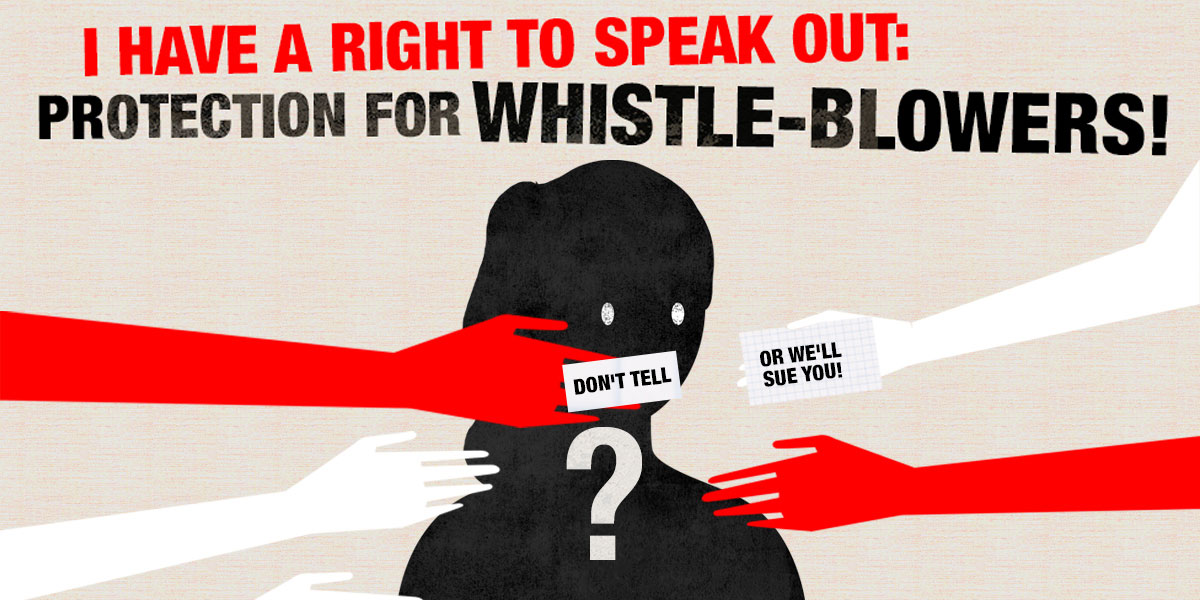Chances are, you've heard of a whistleblower. But what is a whistleblower, and what do they do? Although there is no publicly uniform definition, a whistleblower is usually referred to as "an individual who, without authorization, reveals private or classified information about an organization, usually related to wrongdoing or misconduct."
According to the U.S. Department of Justice, Office of the Inspector General, "whistleblowers perform an important service for the public DOJ, when they report evidence of wrongdoing." So, when someone blows the whistle, they can be in the line of fire by their coworkers, but legally "no one should ever be subject to or threated with reprisal for coming forward with a protected disclosure. It is unlawful for any personnel action to be taken against you because of your whistleblowing."
Under the Whistleblower Program, his individual assistance granted him a reward of $104 million, which has been the largest whistleblower reward that has ever been given.
So, what is the difference between a whistleblower who goes public, and a leaker? A leak can be anonymous, without official authorization, usually made to make information public. However, this is usually done by the government themselves for many reasons. It can be used as a protective measure in some ways, or sometimes even strategy. however, the difference between leaking and whistleblowing is a whistleblower, releases information when they feel unethical or illegal activity is occurring within an organization.
So, for an individual who releases this information, what protections exist for them? In general, it depends on their jurisdiction. In the US, federal whistleblower protection laws have been in place since 1978. In addition, as of 2010, all companies listed on the U.S. Stock Exchange were made subjects of rules, which allowed rewards for anonymous disclosures, as well as prohibiting whistleblower retaliation under the Dodd Frank Act.Although they are protected there have been attempts to retaliate against the whistleblowers. It mostly revolves around revealing their identity. If their identity is revealed, there have been many cases where the whistleblower was terminated from their job and then blacklisted in their sectors. There have also been cases where they receive death threats and jail sentences!
Whistleblowers can affect people of all ages. If they release information that turns out to be true, it can make a huge impact on the country as a whole. Young people, under 18 more than likely won't think anything of it, because they have no stake in the economy, and they have no say in government, so some of these issues would be meaningless to them. However, to adults, these issues are ones that usually affect them. Whether its the stock market, taxes, the banking system, the government, etc. there is always something that we can do to make a change in government and policy. That is the beauty of the system of government that the United States has.




No comments:
Post a Comment